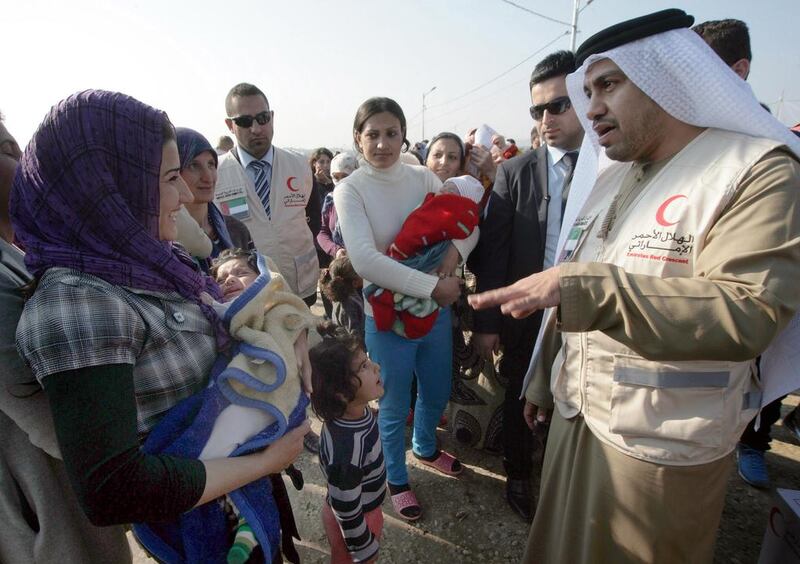When I suggested a few months ago that the fighting in Syria might be tapering off, subsequent events proved me not just wildly over-optimistic but utterly wrong. I should have known better than to tempt fate.
And yet, the US-Russian agreement on a partial ceasefire, due to come into effect yesterday, might, at least, lead to a significant reduction of conflict, except where it relates to the continuing battle against ISIL and other fundamentalist groups. That will depend, of course, on the extent to which key parties are obliged or persuaded to adhere to the agreement. It will not be an easy process. There will be many stumbles along the way.
When, or if, the level of conflict does reduce and a pathway to peace is delineated, there will be an urgent need for active engagement by those who can help Syria's reconstruction. In that process, I believe, the UAE could have a considerable role to play.
The UAE has consistently criticised the policies and brutalities of the Assad regime. We have joined the fight against ISIL. We have also taken pains to ensure the blocking of any support from the UAE for extremist groups. At the same time, through the Emirates Red Crescent and other organisations, very considerable amounts of humanitarian relief have been provided both to Syrian refugees and to those who have been internally displaced. We are committed to help rebuild Syria's infrastructure.
Moreover, through bodies such as the Sawab Centre and Hedayah, both based in Abu Dhabi, we have proven our commitment to countering violent extremism in a variety of other ways. The Sawab Centre counters the siren voices of the extremists, providing a platform for moderate and tolerant views throughout the region. Hedayah is working with others to devise effective ways to counter what its executive director calls “the complexity of the phenomena of violent extremism”.
The struggle is not simply one to be fought on the ground. It requires also – as Sheikh Mohammed bin Rashid, Vice President and Ruler of Dubai, has noted – an intellectual struggle too, one that pits the values of tolerance against the darkness exemplified by extremism and terror.
Here, perhaps, if Syria's conflict does indeed wind down, we could have something to offer. The UAE, rightly, has obtained recognition for its commitment to religious tolerance and interfaith dialogue.
Here at home, freedom of worship is guaranteed by the Constitution, with over 40 churches, as well as a Hindu temple and a Sikh gurdwara, serving our expatriate communities and offering testimony to the reality of our commitment.
In Syria, there is an urgent need for the restoration of that sort of tolerance. Since the conflict began, the multi-ethnic, multi-faith tapestry of Syrian society has been rent asunder.
Repairing it, if, indeed, it can be repaired, will be a long and challenging task.
In offering support for that, we will not be alone. Within Syria, there are those, in all communities, who would welcome our assistance. Internationally, too, there are powerful voices with whom we can work to help Syria heal its wounds.
One such voice is Pope Francis, in whose clarion calls for an end to the fighting there is much with which we can agree, such as his recent comment that it is “unacceptable that so many innocent people must pay the price for this conflict, the price for the closed hearts of the powerful and their lack of will for peace”.
As he also noted: “Any violence which seeks religious justification warrants the strongest condemnation … owing mainly to an extremist and fundamentalist group, entire communities continue to suffer barbaric violence simply because of their ethnic and religious identity.”
Those of goodwill of all faiths, here and elsewhere, have a duty to endorse his condemnation and to work together to end the atavistic horrors that have descended upon our region. Only thus can the healing begin.
Peter Hellyer is a consultant specialising in the UAE’s history and culture





